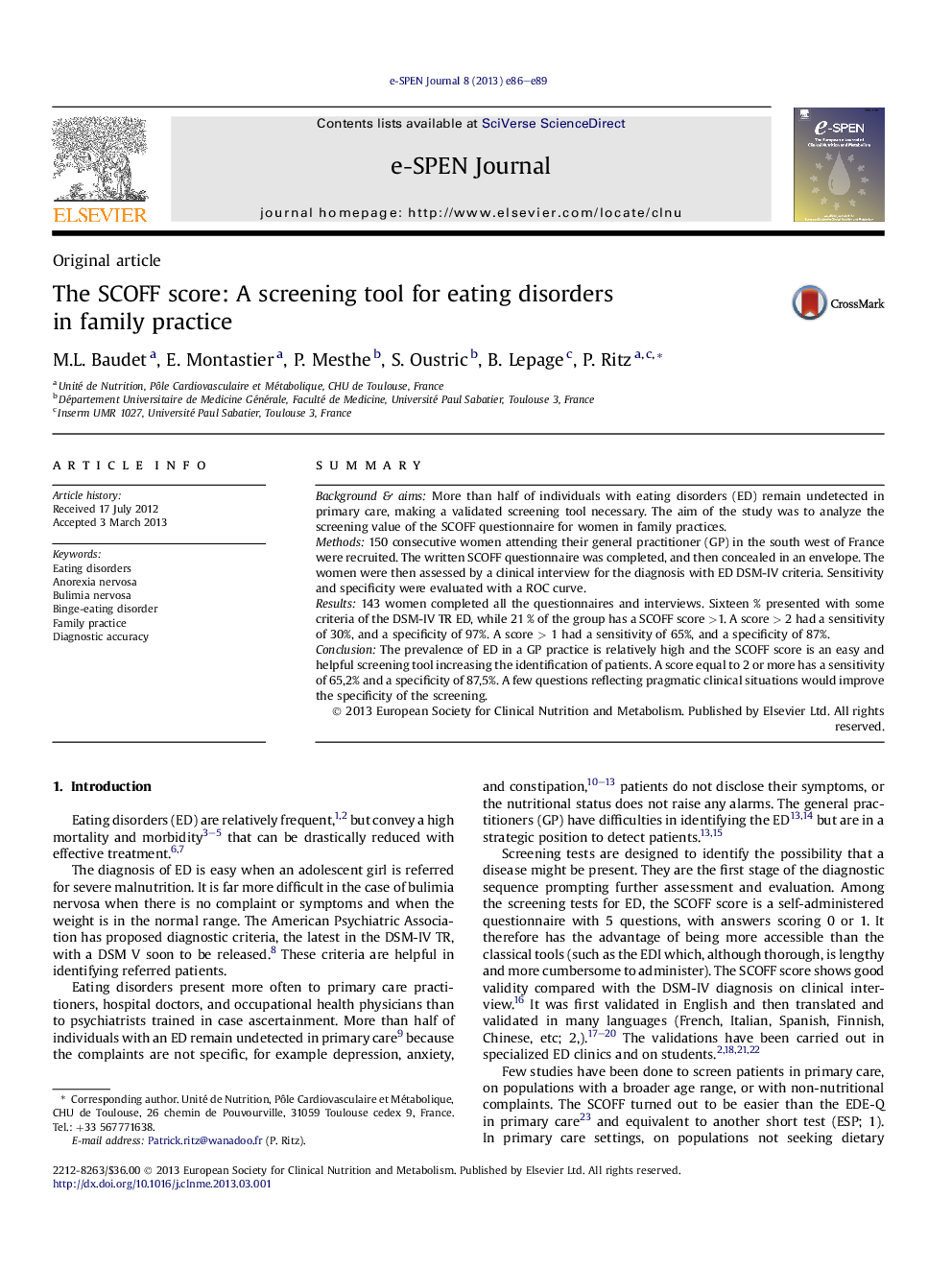| Article ID | Journal | Published Year | Pages | File Type |
|---|---|---|---|---|
| 2685819 | e-SPEN Journal | 2013 | 4 Pages |
SummaryBackground & aimsMore than half of individuals with eating disorders (ED) remain undetected in primary care, making a validated screening tool necessary. The aim of the study was to analyze the screening value of the SCOFF questionnaire for women in family practices.Methods150 consecutive women attending their general practitioner (GP) in the south west of France were recruited. The written SCOFF questionnaire was completed, and then concealed in an envelope. The women were then assessed by a clinical interview for the diagnosis with ED DSM-IV criteria. Sensitivity and specificity were evaluated with a ROC curve.Results143 women completed all the questionnaires and interviews. Sixteen % presented with some criteria of the DSM-IV TR ED, while 21 % of the group has a SCOFF score >1. A score > 2 had a sensitivity of 30%, and a specificity of 97%. A score > 1 had a sensitivity of 65%, and a specificity of 87%.ConclusionThe prevalence of ED in a GP practice is relatively high and the SCOFF score is an easy and helpful screening tool increasing the identification of patients. A score equal to 2 or more has a sensitivity of 65,2% and a specificity of 87,5%. A few questions reflecting pragmatic clinical situations would improve the specificity of the screening.
